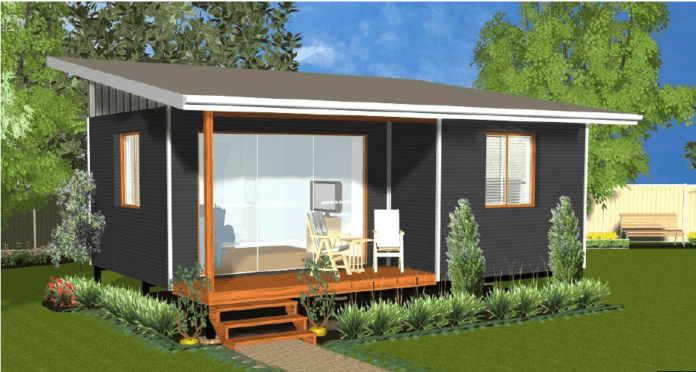The following are the notes from Councilmember Joe Greens presentation that he gave to the Vista City Council about ADU.
What is an ADU ????
An ADU is a secondary dwelling unit with complete independent living facilities for one or more persons and generally takes three forms:
Detached: The unit is separated from the primary structure
Attached: The unit is attached to the primary structure
Repurposed Existing Space: Space (e.g., master bedroom) within the primary residence is converted into an independent living unit
“California’s housing production is not keeping pace with demand. In the last decade less than half off the needed housing was built. The lack of housing is
impacting affordability with average housing costs in California exceeding the rest of the nation. As affordability becomes more problematic, people drive longer distances between a home that is affordable and where they work, or double up to share space, both of which reduces quality of life and produces negative environmental impacts.”
Courtesy of: CA. Dept of Housing & Community Development, Accessory Dwelling Unit Memorandum, 12/2016
“ADU’s are a different form of housing that can help California meet it’s diverse housing needs. Young professionals and students desire to live in areas close to jobs, amenities, and schools.”
City of Vista has not reviewed or addressed development impact fees for ADU’s since we updated 2nd unit requirements per state legislation in 2003. The state says that cities should not be charging the same development impact fees on these 2nd units as we do for new primary units. To build a 1,000-square foot 2nd Unit in the City of Vista, it would cost you an estimated $18,464.42 in fees before you even broke ground and in addition to any fees you paid an architect or contractor to design the unit, $14,701.49 of those fees are simply “Development Impact Fees”, $3,762.93 are the actual city expenses for staff time, permitting, plan check and inspections. From a financial standpoint, waiving these development impact fees will not have a significant financial impact on our city.
Over the last 2 years a total of 11 Second Units were finalized and 17 Granny Flats. Both units paid the same permit, & plan check fees (city costs); however, 2nd Units had kitchens & additionally paid the development impact fees while the granny flats did not. The revenue generated off of these development impact fees equates to 1/10 of one percent (0.11%) of our total annual general fund budget.
San Diego’s Board of Supervisors approved a new initiative to encourage homeowners in the county’s unincorporated areas to develop “granny flats” to help ease the region’s housing shortage (“granny flats” are equivalent to second units in Vista).
The initiative will waive county permit and development impact fees over the next five years for property owners who want to build granny flats or other small
dwellings on lots with existing homes. The hope is those units will then be used for family members or rented out as a source of income for property owners.
“This is a critical step in our on-going efforts to address the region’s housing crisis, especially the serious need for affordable housing,” Dianne Jacob, the board chairwoman, said in a release. “This new program is the quickest and easiest way for us to expedite the development of housing.”
“There is no single solution to the regional housing shortage, but an average savings of $14,000 for an accessory home will raise property values and offer more affordable places to live,” Supervisor Jim Desmond said in a release. “We will continue to be creative and challenge the status quo to solve the region’s housing crisis.”
Courtesy of: KGTV 10News SD, Mark Saunders, 01/09/2019
The purpose of this presentation/discussion item is to discuss the benefits of waiving development impact fees on accessory dwelling units within our City with the Council.
Waiving these fees will help increase our housing stock, while avoiding the significant focused impacts large developments bring to our City.
Waiving these fees will increase property values for homeowners.
Waiving these fees will encourage property owners to build 2nd units as opposed to granny flats, which will help us hit our RHNA numbers.
Waiving these fees shows our citizens that we are actively looking at ways to build within our city, without impacting our amazing Vista residents/voters quality of life.
CITY STAFF REPORT
During the February 26, 2019 City Council discussion, the City Council discussed a variety of options to incentivize the development of ADUs in certain single-family residential zones. These options include the following:
1. Eliminate development impact fees for ADUs with an affordable housing covenant. This would require recordation of a deed restriction on the subject property obligating the owner of the ADU to rent the unit only to eligible and qualified lower-income households at affordable rents for a specified time period. The prior requirements for ADUs that were repealed in 2015 required a 10-year affordable covenant for ADUs. This restriction would not typically apply to a caregiver or family member occupying the ADU.
2. Discount the development impact fees for ADUs that are not affordable units by 50 percent. Any owner not interested in an affordable housing covenant for the ADU would be required to pay half of the applicable development impact fees, which are currently approximately $14,000 per unit.
3. Incorporate a sunset clause or cap for reduced development impact fees for ADUs. The County of San Diego recently adopted revised requirements and fee reductions for ADUs for a five-year trial period.
4. Increase the maximum size requirement for ADUs from 1,000 square feet to 1,200 square feet. The State of California allows a maximum size of 1,200 square feet for an ADU. Vista’s current requirements limit the size of an ADU based upon the zoning designation and lot size. Maximum size of an ADU currently ranges from 650 square feet to 1,000 square feet and may not exceed the size of the main unit.
5. Establish pre-approved construction drawings for a pre-approved ADU design. In an effort to increase the city’s stock of affordable rental units, the City of Encinitas recently hired an architectural consulting firm and adopted pre-approved designs for ADUs. This type of process would require staff to issue a request for proposals for design services, bring the contract before the City Council for funding and approval, establish a pre-determined number of designs with the consultant, plan check all of the designs, obtain approval of the designs from the City Council, and publish final plans and specifications for the units. There is currently no funding allocated for this purpose.
6. Permit attached and detached ADUs in the R-1-13 Zone. The R-1-13 Zone allows single-family homes and accessory uses on a lot no smaller than 6,000 square feet. The current ADU requirements limit ADUs to lots of 10,000 square feet in size and greater. There are currently 2,243 parcels within the City that are zoned R-1-13. There are currently 8,205 parcels with appropriate zoning designations (R-1, E-1, A-1 and O-R) for ADUs within the City of Vista. Staff estimates approximately 20 percent of those properties could reasonably develop ADUs based on assumptions at the regional level, which equates to approximately
2,000 ADUs as a “buildout” estimate for ADUs within the City.
Staff is requesting the City Council’s direction with regard to modifications to the existing ADU requirements and associated fees. Should the City Council direct staff to prepare modifications to the Development Code, an amendment would be prepared and scheduled for public hearings at the Planning Commission and City Council.
FISCAL IMPACT: There is no direct fiscal impact associated with the staff recommendation. Any potential fiscal impact resulting from the City Council’s direction will be discussed as part of the agenda report prepared for a Development Code amendment.



















